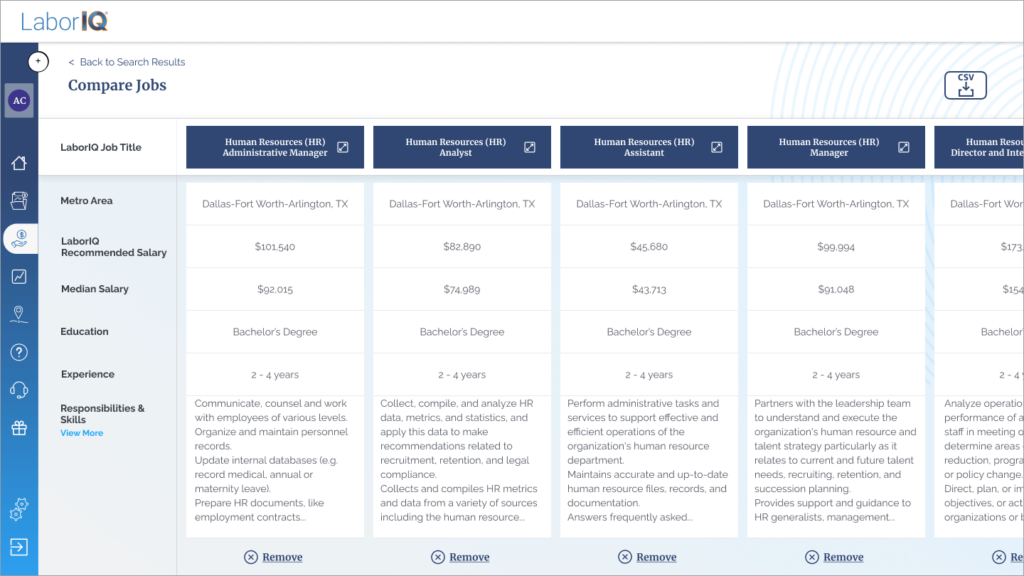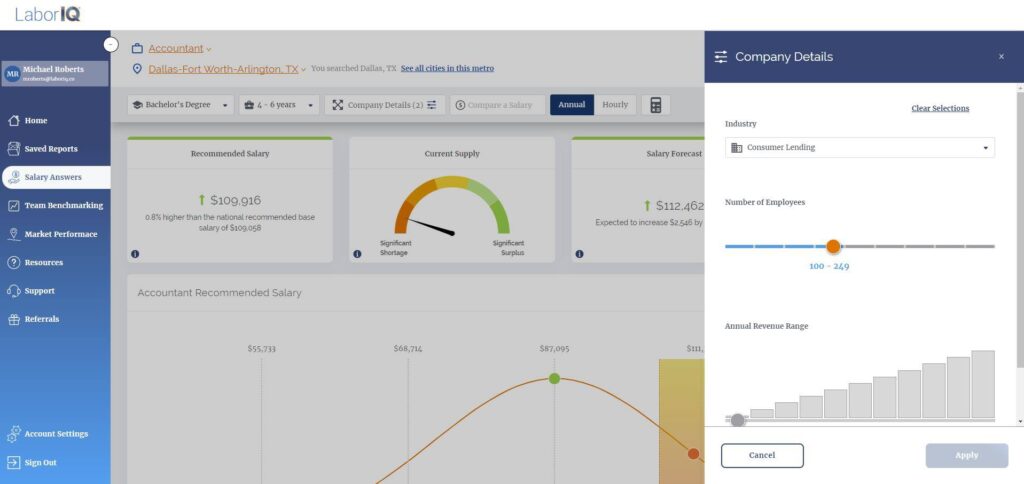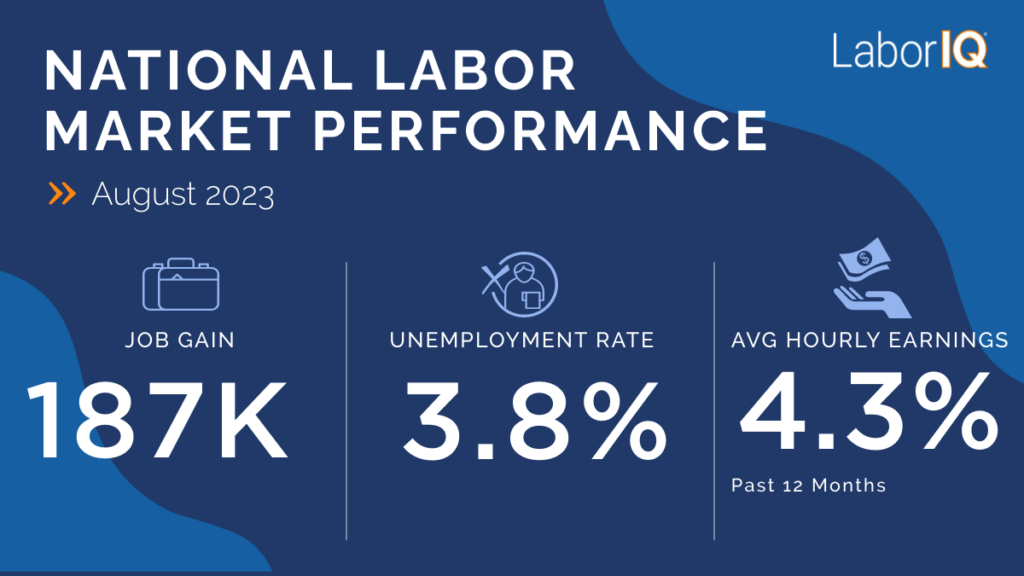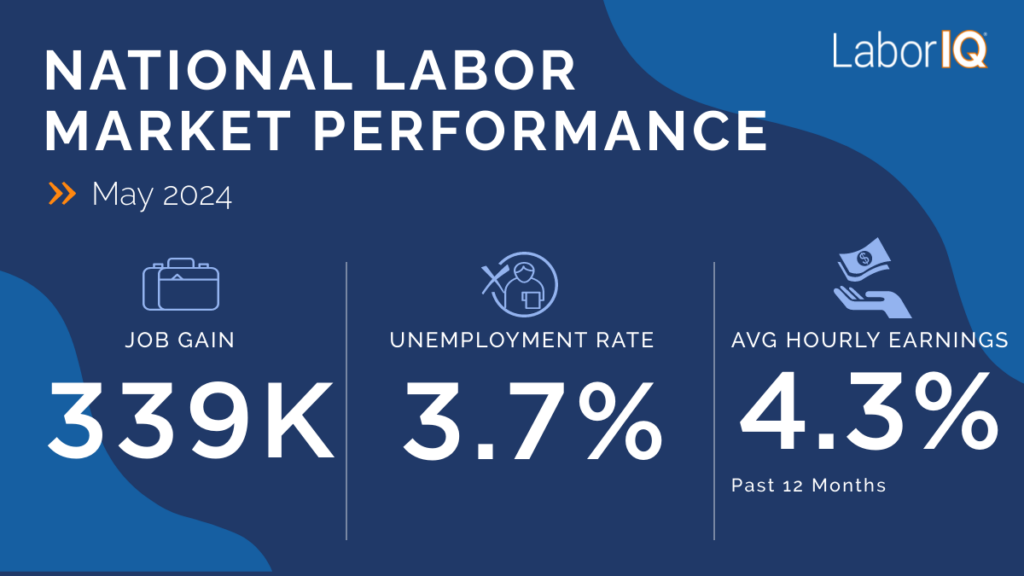If you’re struggling to hire an administrative assistant, it may be as comforting as it is concerning that you’re not alone.
Typically, administrative assistants perform various organizational and clerical tasks to support their coworkers and company operations. From managing documents to helping to build relationships with clientele, there are several reasons why administrative assistants remain vital to a company’s structure.
Perhaps for this reason, the demand for administrative workers will likely remain the same. Notably, the BLS reports that despite an 8% decline in the employment of this role, openings will remain steady overall.
However, although demand is consistent, the same cannot be said for supply. In fact, our analysis shows that the demand for administrative assistants will significantly outweigh supply in the coming years.
With this in mind, understanding what constitutes fair and competitive compensation for administrative assistants will become increasingly vital for attracting and retaining these workers. So, here we’ll provide an overview of what the role of administrative assistant entails, the skills required and the associated compensation standards.
There’s a lot to discuss, so let’s dive straight in!
The Administrative Assistant Role
An administrative assistant’s responsibilities and duties typically include providing admin support to their managers and employees, managing the company’s general administrative activities and preparing communications – e.g., emails, letters, invoices, etc.
However, the role can vary considerably depending on the industry. For instance, legal admin assistants often need a more refined skill set to carry out legal research, draft documents, etc. Likewise, medical administrative assistants may need to understand and record medical charts, reports and correspondence.
That said, there are some overarching duties that most administrative assistants perform, for example:
- Scheduling: An administrative assistant is often responsible for arranging appointments and meetings for their employer or supervisor. This might include coordinating schedules with other staff members, reserving conference rooms, arranging transportation or catering, etc.
- Data entry: Administrative assistants usually maintain accurate and up-to-date records, which may include entering data into databases or spreadsheets, updating contact information and filing documents electronically.
- Office management: An administrative assistant is typically responsible for day-to-day operations. This may include ordering supplies, managing the mail, answering and directing phone calls, and coordinating with vendors or service providers.
- Bookkeeping: An administrative assistant may be responsible for maintaining financial records, such as invoices, receipts and other financial documents, and performing basic bookkeeping tasks, such as reconciling bank statements, overseeing budgets and preparing financial reports.
What Skills and Experience Should You Look for in an Administrative Assistant?
According to Indeed, most administrative assistants will need at least a high school diploma and potentially some college education, depending on the company and job level. This is particularly relevant in specialized fields such as medicine and law.
However, experience is often more critical for this role than education, especially concerning knowledge of different software and office procedures. That’s why four to six years of experience is typically considered a good standard for senior and higher-level admins.
Specifically, highly qualified candidates should be able to demonstrate the following soft skills:
- Time management.
- Excellent verbal and written communication skills.
- Critical thinking.
- Complex problem-solving and negotiation.
- Decision making.
Experienced administrative assistants should also have the following ‘hard skills’ (a measurable ability or technical competence gained through hands-on experience, training or qualifications):
- File and document organization: This includes experience maintaining and organizing physical and electronic files and documents. This might also consist of creating and implementing filing systems, labeling and indexing files and ensuring that files are stored securely and are easily accessible.
- Planning: A proficiency in organizing projects and tasks is necessary. This may include creating timelines, setting deadlines and coordinating with staff members to ensure projects are completed on time and within budget.
- Office procedures: This should include a sound knowledge of mail and shipping procedures, experience executing telephone and receptionist duties and operating standard office equipment. For example, word processing, using spreadsheets, emailing, photocopying, scanning, and utilizing electronic calendar programs.
- Managing employee relations: An administrative assistant may also be responsible for maintaining positive relationships with employees and supporting staff members. This may include handling employee complaints and concerns, communicating with staff about office policies or procedure changes and providing guidance on workplace issues. Therefore, experience in this domain is also a bonus.
- Proficiency with software like MS Office or G-Suite: Administrative assistants need to be able to create and update spreadsheets and prepare professional documents and presentations.
Compensation and Salary Trends for Administrative Assistants
LaborIQ’s salary analysis for administrative assistants in the Raleigh metro area suggests a recommended median salary of $47,206, which is 6.7% lower than the national recommended base salary of $50,577.
One reason this position’s median salary sits below the national average is that various automated processes and technological developments have replaced certain aspects of the job. For example, data entry, matching invoices, generating reports, scheduling meetings, sending notifications, etc. These are just a few of the many examples of the kinds of tasks that automation software and AI can execute.
However, as a result of technological advances, we may find more administrative assistants developing niche skill sets. They may shift their primary duties and responsibilities to other areas. For example, becoming more adept at systems management, data-driven decision-making and becoming more involved with building relationships and communication strategies.
This, alongside rising inflation, is why LaborIQ predicts that the average administrative assistant’s salary will significantly increase over the next five years, potentially reaching highs of $53,000 by 2028.
The bottom line: It would be wise for businesses to leverage these findings by offering highly qualified candidates a competitive salary. After all, as previously mentioned, demand is set to remain consistent and supply is predicted to dwindle. Offering an enticing wage in this climate will go a long way to securing the talent your business needs. In addition, you could further sweeten the deal by offering candidates professional development opportunities, performance-based bonuses and/or employee assistance programs.
Recruitment Options
If you’re unsure about how to hire your next administrative assistant, here are a few methods you may want to consider:
- Boomerang hiring – For example, re-engaging and recruiting former hires. This might involve leveraging alum networks that enable you to stay connected with former employees.
- Broaden your candidate pool- Consider widening your candidate pool into different geographic areas. To help facilitate this, you could enable candidates to work remotely (if possible). You could also broaden your reach by being more inclusive and/or seeking independent contracts to fill gaps.
- Early entry recruitment – To tackle the staffing shortage, consider taking on early-career professionals and offering the training needed to cultivate them into the administrative assistant you need. To hit the ground running, start building relationships with colleges and universities and attend their careers fairs.


















































